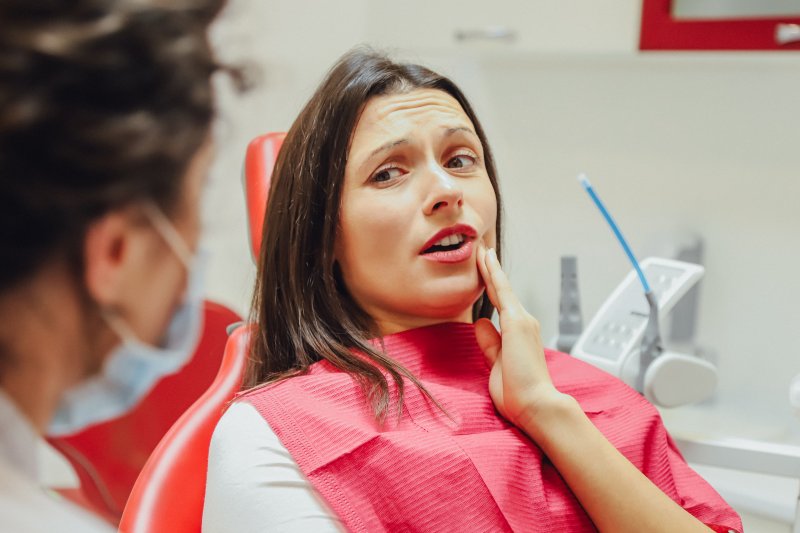
Not all dental emergencies are the same. Some produce an immense amount of pain while others might leave you feeling slightly annoyed by a dull ache. From discomfort level to the actual injury you’ve incurred, you may or may not need to seek immediate dental care. Since not every accident is worthy of jumping in the car and heading to the emergency dentist center, especially now with COVID-19 keep most practices closed to only the most severe injuries, how can you tell when you need real help? Read on to find out.
What Signs Dictate an Emergency Visit to the Dentist?
If you struggle to decipher when something is serious and when it’s not, you’re not alone. However, understanding the signs and symptoms can help you make the right decision as to where you should go and when to seek help.
One important factor to remember is that no matter the accident, it’s always best to call your dentist’s office. Team members will be able to determine if the situation is serious enough to schedule a same-day appointment or wait until a later date when the office reopens.
If you are experiencing any of the following situations, go ahead and plan for a trip to see the emergency dentist:
- Extreme tooth pain that is caused by an infection/abscess
- A loose tooth if you are an adult. Loose teeth in children are common and not an emergency
- A knocked-out tooth because in order for it to be saved, you must see a dentist within an hour
- Swollen jaw, fever, and difficulty breathing, as this could obstruct your airway
- Fractured or broken jaw
- Continual bleeding from the mouth
What to Do if You Need to Treat it at Home
If you call your dentist center and are told that the situation is not urgent enough to come in right away, they will likely schedule your appointment at a much later time and offer tips and instructions on what to do to achieve relief from the discomfort. Some of the most common at-home remedies include:
- Using a cold compress or ice pack to reduce swelling and alleviate pain
- Take a pain reliever as instructed to minimize discomfort
- Rinse with saltwater to cleanse an injured area of the mouth
- Use a dental adhesive to reattach a lost crown or filling
- Apply dental wax to prevent jagged edges from damaging your soft oral tissues
- Purchase specific toothpaste to combat issues of tooth sensitivity and/or gum disease
Whether your injury requires an immediate trip to the dental center or requires you to stay home and treat the problem area, trust that your dentist wants to help keep you and your mouth safe during this time. Once businesses are allowed to reopen, they will work to schedule an appointment and get you in to begin repairing and restoring your smile.
About the Author
Dr. Thomas Youngblood earned his Doctor of Dental Surgery degree from the University of Texas Health Science Center at San Antonio Dental School in 2002. Currently, Dr. Youngblood is also a Commissioned Officer in the Texas Army National Guard. Along with his colleagues and team at Family Dental Center of East Texas, Dr. Youngblood is proud to provide services to both adults and children. Although only seeing emergency patients at this time due to COVID-19, he and his team can provide step-by-step instructions on how to care for certain injuries at home. No matter the type of accident, if you or a family member is experiencing a dental emergency, visit our website or call (936) 427-9070.
